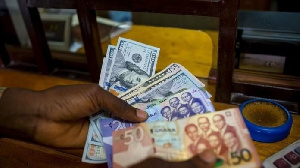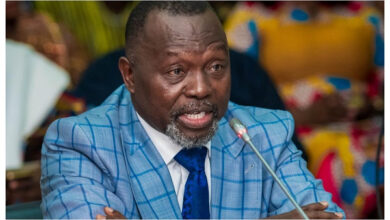Why Ghana should be cautious about Cedi Strength against the dollar

When the Ghanaian cedi (GHS) gains value against major foreign currencies like the U.S. dollar or the British pound, it often draws praise for indicating economic stability and investor confidence. On the surface, a strong cedi seems like a national win—making imports cheaper and signaling financial strength. But beneath the surface lies a complex web of economic consequences that could hinder long-term growth.
This article explores the disadvantages of a strong cedi, especially in the context of Ghana’s trade balance, local industries, and foreign investments.
1. Ghana’s Exporters Lose Their Edge
Ghana’s economy heavily depends on exports like cocoa, gold, and crude oil. When the cedi strengthens, these products become more expensive for international buyers. A stronger currency means that each tonne of cocoa or barrel of oil priced in U.S. dollars yields fewer cedis when exchanged back home.
This can:
-
Reduce demand for Ghana’s exports
-
Shrink foreign exchange earnings
-
Hurt farmers, miners, and industrial producers reliant on external markets
In a global market where pricing is highly competitive, even small fluctuations in currency strength can significantly impact trade performance.
2. Lower Remittance Value for Families
Ghana receives billions of dollars each year in remittances from its diaspora. These funds are critical for supporting household consumption, education, healthcare, and small business ventures.
However, when the cedi is strong:
-
Each dollar, euro, or pound sent home translates into fewer cedis
-
Families relying on remittances face decreased spending power
-
The local economy, especially in remittance-dependent regions, may slow down
This can create unintended hardship, particularly for lower-income households.
3. Cheaper Imports Threaten Local Industry
One of the most immediate effects of a strong currency is the affordability of imported goods. While this may benefit consumers in the short term, it creates stiff competition for Ghanaian manufacturers and producers.
A strong cedi leads to:
-
A surge in cheap foreign products on the local market
-
Reduced demand for made-in-Ghana goods
-
Pressure on local businesses, potentially leading to job losses
If not managed properly, a strong cedi can undermine Ghana’s push for industrialization and self-reliance.
4. Tourism Takes a Hit
Ghana is working hard to position itself as a top tourism destination in Africa, building on initiatives like the “Year of Return.” However, a stronger cedi may make the country less attractive to foreign tourists.
When the cedi is expensive:
-
Tourists get less value for their foreign currency
-
Hotel, food, and travel costs appear higher
-
Ghana becomes less competitive compared to neighboring countries
This could reduce tourism inflows, affecting businesses and communities that rely on hospitality and travel services.
5. Foreign Investment Becomes Less Attractive
Foreign investors look for markets where they can maximize returns. A strong currency can deter them in two major ways:
-
Currency losses when repatriating profits
-
Reduced competitiveness of Ghana-based operations
As Ghana aims to attract more foreign direct investment (FDI), particularly in sectors like manufacturing, agribusiness, and fintech, maintaining a balanced exchange rate is key.
6. Artificial Strength Can Lead to Instability
Sometimes, a central bank might artificially maintain a strong currency through interest rate hikes or foreign reserve interventions. While this may temporarily support the cedi, it often comes at a cost:
-
High interest rates that make borrowing expensive for local businesses
-
Drain on forex reserves
-
Risk of a sharp currency crash if fundamentals shift
If the cedi’s strength is not based on productivity or export growth, the economy becomes vulnerable to sudden shocks.
While a strong currency might seem like a badge of honor, its downsides are real. For Ghana, maintaining a competitive exchange rate that supports exports, local industries, and investment is more sustainable than simply aiming for a stronger cedi.
Rather than celebrating a rising currency uncritically, Ghana must strike a delicate balance—ensuring monetary stability while protecting the sectors that drive growth and jobs.
A strong economy is not just about a strong currency. It’s about resilience, diversity, and inclusivity.
Source: Thepressradio.com




